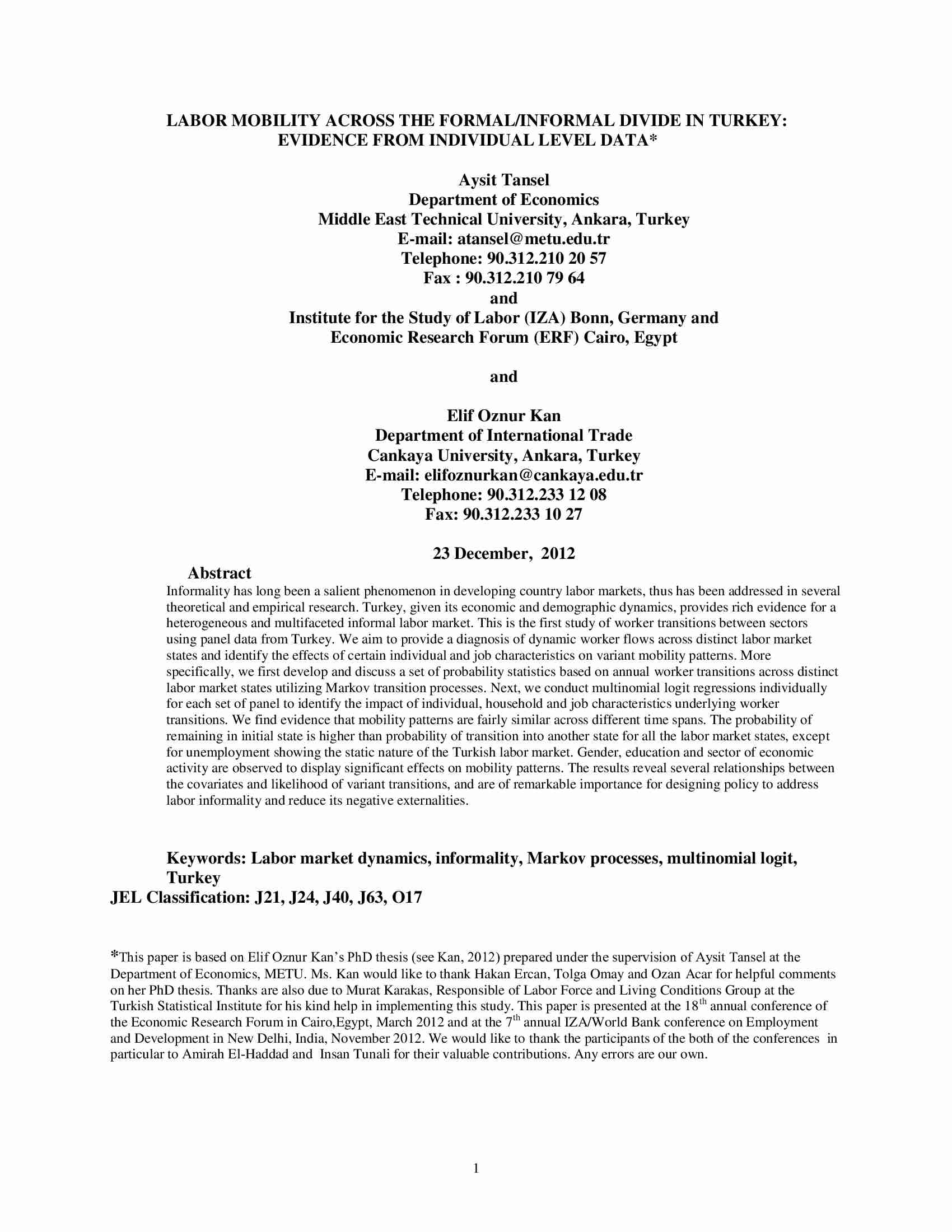Labor Mobility Across the Formal/Informal Divide in Turkey: Evidence from Individual Level Data
Abstract:
Informality has long been a salient phenomenon in developing country labor markets, thus has been addressed in several theoretical and empirical research. Turkey, given its economic and demographic dynamics, provides rich evidence for a heterogeneous and multifaceted informal labor market. This is the first study of worker transitions between sectors using panel data from Turkey. We aim to provide a diagnosis of dynamic worker flows across distinct labor market states and identify the effects of certain individual and job characteristics on variant mobility patterns. More specifically, we first develop and discuss a set of probability statistics based on annual worker transitions across distinct labor market states utilizing Markov transition processes. Next, we conduct multinomial logit regressions individually for each set of panel to identify the impact of individual, household and job characteristics underlying worker transitions. We find evidence that mobility patterns are fairly similar across different time spans. The probability of remaining in initial state is higher than probability of transition into another state for all the labor market states, except for unemployment showing the static nature of the Turkish labor market. Gender, education and sector of economic activity are observed to display significant effects on mobility patterns. The results reveal several relationships between the covariates and likelihood of variant transitions, and are of remarkable importance for designing policy to address labor informality and reduce its negative externalities.
View list of all: Research Reports

